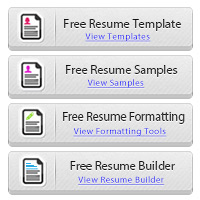
Resume advice 2018
Many career advisers and people who provide suggestions for resumes are often misguided, most often by the previous advice they read or heard. The biggest bogus advice I’ve read this year is to place your education as the last thing on your resume. If you’re going for a minimum wage job then I would agree with this, however, the workforce is flooded with people who only have a high school degree or some college from an online “McVersity”. The so-called higher education institutions have a very low bar of admission.
Please Do List Your Education on Top
There is a reason why the Ivy League is the top educational preference. They have very high standards and they are not easy to get accepted into and matriculate. Another reason to list your education first even if you are a senior manager it shows you had a plan and a mission from very early on in your life.
Companies are flooded with people who view education as an afterthought once they encounter life in the workplace or have unplanned children. Sure, furthering your education is always lofty. Distinguish yourself showing your education at the very beginning of your resume. You have a plan.
You Don’t Need A Circuit Vitae
In constructing this topic, I perused other supposed job coach’s advice. “Make sure to have a CV as well as a Resume”
Very few people in the professional world have a Curricula Vitae. They probably don’t even know what it means or spells it wrong. One supposed expert told recent college graduates to “write their curricula vitae” in a short form.
For the clueless, curricula vitae means “lifetime body of works”. Very few people, professionals included have what can be defined as a CV – curricula vitae. It is usually found only among people with an advanced degree, Masters or Doctoral. It almost always is a list of publications and major public impact achievements. If you just graduated, you have a resume. You will most likely still have a resume 30 years later. Don’t waste your time or money.
Hone your Industry
Know what industry you are in. If you are just out of school, returning to work after pregnancy or a job loss, know where you want to go in your future. Know your timespan. If you went to a subpar educational facility or an internet school please understand this one fact very clearly: You are never going to earn as much money or have the salary of an individual who had a career plan. The time of life when you obtained your college and graduate school degrees matters considerably.
The reason why women do not earn exactly the same as a man is mostly because they got their degrees later in life. More likely than not they have larger gaps between employment because they had children and raised a family. You will never replace the on the job experience of an individual who planned their career and went from college to grad school to the career force.
Luckily these days are now coming to an end as we enter the freelance ere where 50% of jobs are going to be work from home by 2020.
Social Media Influence and the Old Boy Network
The numbing reality of Social Media today distorts who you are in the workplace. Right off the bat the reality and pervasiveness of the Old Boy Network automatically discount people of color and all people from high density, low-income neighborhoods. I have seen more than one clueless person get placed into a position they had zero qualifications.
I have been told more than once, “Just hire this guy okay? Go through the steps like it’s a blind compete, but hire this guy as soon as you can”. I’ve had my boss run over to me after an interview and tell me the person is too fat to work there. I’ve had the same boss tell me not to hire people of all sorts of reasons, but luckily I had ethics and quit that gig a long time ago.
Perhaps Social Media has inflated your fame. Everybody under 20 years old wants a clip or song to “Go Viral”. Young people often are more prone to film or write something on Social Media involving socially shunned mores of the conservative old guard establishment. The more things change the more they stay same.
Here is the best advice I can give for career and resume writing in 201
The advice provided so far is not like the usual gamut of resume writing advice you will find today. But I close with echoing the most common resume writing advice.
- Introduction and Overview: Use the first few sentences to describe who you are and why you are the best person for this type of job. This can be generic, but must specifically reference the industry where you work or want to work.
- Professional Synopsis Cover Letter: This must be uniquely written to the hiring manager or resource specialist. This is where your specific research on the company differentiates you from the horde to land you the interview and job. Here is a cover letter template you can use.
- Use numbers, not bullets: This makes it easier for you and an interview panel to move between jobs and specific relevant skills.
- Concise: Whether you are graduating soon or downsized from your industry ensure your resume is brief, concise and on-point.
- Length: One page only for the first half of your career. As you mature through the workplace you may gradually lengthen to two pages, two and a half pages maximum.
- Relevant: If you had the luxury of a college education or the financial resources to pay for professional Certificates you are current with your industry trends and nomenclature. If you lack these credentials try to learn these terms on your own.
- Accomplishments: Precisely tie accomplishments from Overview Introduction to exact jobs where you used the skill. Exemplify and personify the work experience you possess.
- Non-work activities: Many people will tell you putting a summer job or volunteer work in your resume is a great idea. It isn’t. It indicates you are comfortable enough to not have to work.
- Volunteer work is last part of your resume: Avoid discussion of religious practices at all costs. Who knows what voodoo the recruiters, hiring managers or whoever gets to see your resume believes in. If you want to make a point then please stop reading now.
- Make your resume engaging: let the interviewer or hiring manager want to know more about you. Show concrete results of your work responsibilities and accomplishments, don’t simply tell your duties.
- Highlight Results and Impacts: In this section, both professional and community accomplishments are perfectly fine to highlight, but only if it directly relates to a job responsibility.
- You can do 90% of the Job without training. Remember the person chosen for this job exactly fits the job description and needs of the company. If you do not have A grade or 90 percent experienced skillset for the position you will not likely get the job.
Always let your new boss and team how you will make their job easier if they hire you. A new trend is to quantify your impact on the company. This is best done with a dollar value or ROI – return on investment. This is easiest if you can quantify an increase in sales or growth in the market segment. You can also discuss it qualitatively. A broader product selection available for customers. Or allowing your Boss or team more quality time to spend with their kids and families at special events.
Good luck and remember, if they treat you like crap in the interview then more likely than not they will treat you the same in the workpalce. You have choices my friend, keep learning and getting better.
